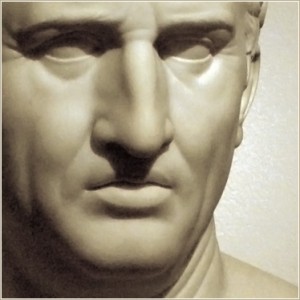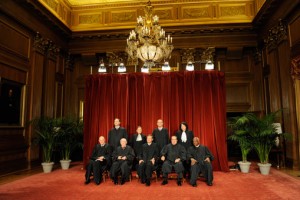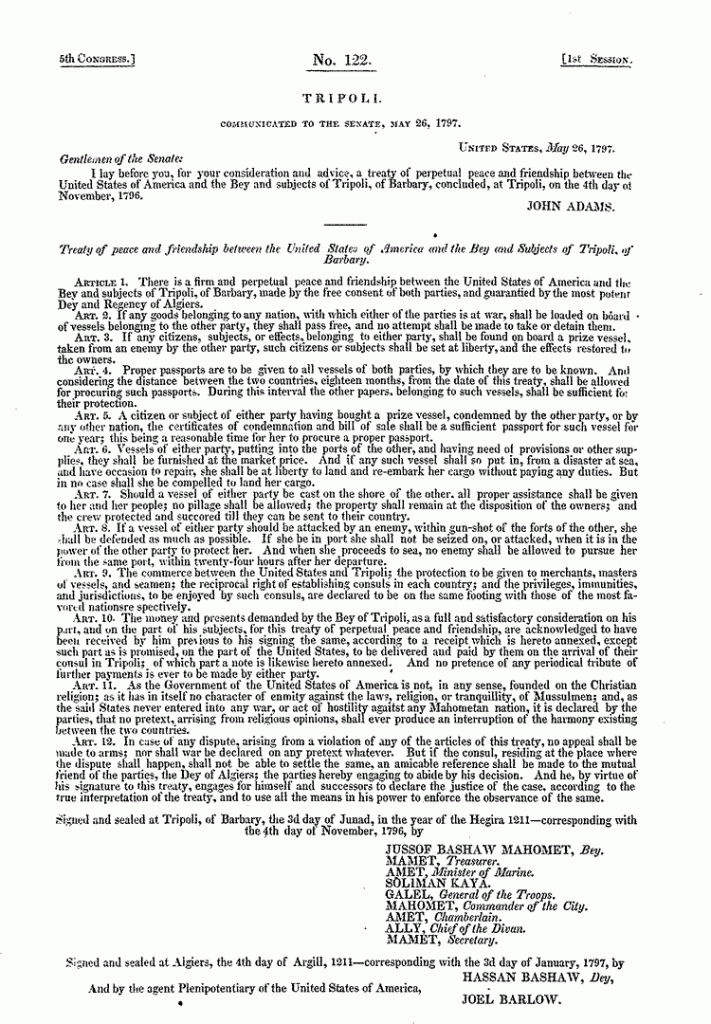Did the Founders Intend for There To Be a Separation of Church and State in the United States?
A friend from college and I have been discussing whether the separation of church and state is what the founders intended and whether it is a good or bad thing for society. After a few years of studying the issue, here are my conclusions. I’ll keep it as brief as I can.
I despise intellectual dishonesty almost more than almost anything else. The simplest definition of intellectual dishonesty is when someone knowingly excludes information or data that would hurt his or her own point of view even though they are aware of its existence. For example, some cell phone companies have stated there is no “conclusive” proof that older model phones cause brain cancer. That one word is key because there are studies that show heavy phone use correlation with increased tumor development. By using the qualifier “conclusive” (meaning beyond question), the companies can basically lie, while being legally protected because it is true according to the letter of the law. There are millions of Americans buried in cemeteries because the tobacco companies used this same line of reasoning back in the 1950s and 1960s and they weren’t trained by the school system to pick up on this. That is because the school system was created to churn out good factory workers and not leaders or thinkers. I think it is a moral failure of the civilization.
Lately, in my reading, I’ve come across some religious authors who are stating that the United States was “always a Christian nation” and it was the intention of the founding fathers that we be ruled with a ethical system descending from the “desert religions” including Judaism, Christianity, and Islam. The evidence from the the founding fathers’ own writing disputes this, however, as well as their actions when they took the reigns of power after establishing the constitution. As someone born and raised in the Bible belt, in a deeply religious family, I have some opinions on this.
It All Begins with Cicero
In a republic this rule ought to be observed: that the majority should not have the predominant power. – Marcus Tullius Cicero
 Cicero, one of the greatest men of all time, had an enormous influence on the founding fathers when they structured the newly formed United States of America as a constitutional republic and not a democracy. Jefferson, Madison, Franklin, Washington, Adams, Lee, and the rest abhorred the notion that neighbors should be able to vote on the rights of their fellow man. They realized that mob rule was no different (and perhaps even more frightening) than having a single dictatorial monarch.
Cicero, one of the greatest men of all time, had an enormous influence on the founding fathers when they structured the newly formed United States of America as a constitutional republic and not a democracy. Jefferson, Madison, Franklin, Washington, Adams, Lee, and the rest abhorred the notion that neighbors should be able to vote on the rights of their fellow man. They realized that mob rule was no different (and perhaps even more frightening) than having a single dictatorial monarch.
This, combined with the heavy presence of the ideas of Locke, Voltaire, and Hobbes in the founders’ collective philosophical belief system (notably the notion that the primary purpose of government was the preserve man’s natural right to “life, liberty, and property” and that religion should be separated from governmental functions) were the bedrock of the new nation.
These were radical concepts that were a response to centuries of fighting over everything from personal rights to the role of religion in the state government (recall that these men were British citizens and that their national history was one of countless bloodshed beginning with Henry VIII throwing down the religious gauntlet and turning Europe into a battleground for generations that followed).
The Founding Fathers Signed a Legal Treaty Stating that The New United States Was Not “In any Sense” a Christian Nation
In fact, we went so far as to enshrine these concepts into some of our earliest legal documents. Under President John Adams, and his cabinet, which included then-Secretaries Thomas Jefferson and Alexander Hamilton, the Treaty of Tripoli was signed after being ratified by the United States Senate (most of whom were founding fathers, as well). This treaty specifically states:
Art. 11. As the Government of the United States of America is not, in any sense, founded on the Christian religion,—as it has in itself no character of enmity against the laws, religion, or tranquility, of Mussulmen,—and as the said States never entered into any war or act of hostility against any Mahometan nation, it is declared by the parties that no pretext arising from religious opinions shall ever produce an interruption of the harmony existing between the two countries.
In other words, the same founding fathers who fought the revolution, created the congress, and designed the constitution stated in no uncertain terms in one of the first legal documents issued under this new constitution that the nation was “not, in any sense, founded on the Christian religion”. Unless all of them simultaneously developed a case of temporary Alzheimer’s, I think it is a safe assumption that they knew exactly what their intentions were when they created the country only a few years before treaty ratification! This isn’t up to some historian’s interpretation, it is their own words, in black and white, unequivocally clear.
Of course, we all know that many, if not most, of these men were religious in their own private lives. They were just wise enough to understand that if denominations split over questions of communion and divorce, a government had no hope of permanence if it incorporated belief systems into the laws. Since the government had one job – to secure life, liberty, and property (or, as they modified it, the pursuit of happiness) – constant social upheaval due to religious infighting would be antithetical to the purpose.
In fact, in 1782, Jefferson stated “… it does me no injury for my neighbor to say there are twenty gods or no God. It neither picks my pocket nor breaks my leg.” Furthermore, Jefferson was disgusted by the idea of the church proper (the institution itself) involved in government, “History, I believe, furnishes no example of a priest-ridden people maintaining a free civil government. This marks the lowest grade of ignorance of which their civil as well as religious leaders will always avail themselves for their own purposes.” (ref: Jefferson to Alexander von Humboldt, Dec. 6, 1813).
This is one of the reasons they were so wise and the system still works today. Denominations split all the time. In more than two centuries, the United States has had only a single civil war.
Should There Be Prayer in School?
Take, for example, prayer in public school. Imagine that overnight, prayer is permitted in the public school system starting tomorrow morning. You are a non-denominational protestant Christian. You send your child to class and suddenly they have a Muslim teacher. Are you really going to be okay with them facing mecca and praying to Allah? What if you are a Catholic and your child’s teacher is Latter Day Saints? Instead of talking about the reading, writing, and arithmetic, the PTA meetings are going to devolve into a religious debate, which is what destroyed our ancestors in Europe. Congress lacks the Constitutional power to pass laws respecting any religion, so in this case, they aren’t going to be able to proscribe which type of prayer is acceptable – if the prayer door is open, anything can come through it. It is a Pandora box because you cannot simply demand that only Christianity be allowed.
This is why private churches exist. It is the parent’s job to raise their children in their faith, to teach them about the beliefs they hold fundamental and dear. Trying to pawn it off on a teacher is just another example of laziness; people too busy to actually take a role in preparing their kids for the real world. Parents that want the school environment to reflect their religion should put their kids into private religious schools. That way, they know everyone agrees with their philosophical worldview.
What Are the Implications for Majority Rule in Our Society?
For those of you who are well-read and knowledgeable in civil rights cases in the United States all I need to say is Griswold v. Connecticut. That is enough to make my point.
For those of you who don’t know about it, Griswold v. Connecticut was a landmark 1965 Supreme Court case where “activist judges” did their job and cast down a law that the voters of Connecticut had passed. The Catholics of the state believed that birth control was against God’s will so they convinced the majority of voters to ban contraceptives even between married couples in the privacy of their own home. The case ascended to the Supreme Court, wherein the court struck down the law. The justices ruled that the majority of voters couldn’t violate the marital privacy of their neighbors even though they had deeply held religious beliefs.
 I think the judges were absolutely correct despite the fact that what they did was “judicial activism” to the same degree that their ruling in Loving v. Virginia might be considered as such. In Loving, the court ruled 9-0 that voters had no authority to keep interracial couples from marrying each other, even if they opposed it on religious ground. Likewise, in Lawrence v. Texas, the majority ruled that the state cannot “legislate morality” and tell people what is acceptable in their own bedroom (with the exception of Sandra Day O’Connor, who stated that the legislature could do so but only if it didn’t violate the equal protection clause and applied to everyone across the board; i.e., the state can ban sodomy (any non-reproductive sex act including oral sex) but only if it included heterosexual couples in the ban, otherwise the 14th amendment would be violated). These three cases have, at various time, been lightning rods for conservatives who say that the judicial branch is overstepping its bounds yet the cases are always on the side of individual rights to live their life free from interference from the majority.
I think the judges were absolutely correct despite the fact that what they did was “judicial activism” to the same degree that their ruling in Loving v. Virginia might be considered as such. In Loving, the court ruled 9-0 that voters had no authority to keep interracial couples from marrying each other, even if they opposed it on religious ground. Likewise, in Lawrence v. Texas, the majority ruled that the state cannot “legislate morality” and tell people what is acceptable in their own bedroom (with the exception of Sandra Day O’Connor, who stated that the legislature could do so but only if it didn’t violate the equal protection clause and applied to everyone across the board; i.e., the state can ban sodomy (any non-reproductive sex act including oral sex) but only if it included heterosexual couples in the ban, otherwise the 14th amendment would be violated). These three cases have, at various time, been lightning rods for conservatives who say that the judicial branch is overstepping its bounds yet the cases are always on the side of individual rights to live their life free from interference from the majority.
The judges did their job. The founding fathers knew exactly what they were doing when they put these men and women beyond the reach of the voters and made them free to follow their own conscience. The judicial system is not the bastard stepchild of the other two. It is a fully equal, participating branch of the republic. It was put there to keep the ignorant, bigoted masses in check against their baser impulses. That may not be popular to say but it is absolutely the truth. The founding fathers were rich, well educated, and smarter than the peasants. To say they didn’t design a system to keep said peasants in check would be disingenuous.
Only the Insecure and Unfaithful Are Threatened by the Beliefs of Others
In my own case, were we to go to a majority rule system, I would be even better off because I’m a rich, white, male Caucasian with a six-figure private school education, surrounded by a network of comparably situated people … but I don’t want to live in a country like that! I love diversity. I like hearing different points of view. Like Jefferson, contrasting opinions don’t harm me anymore than someone who insists that the sky is purple.*
As a statement of fact, most of the people threatened by the checkout lady at the grocery store, who worships Lord Krishna, are those who are typically below the median income line, have lower education levels, haven’t traveled or seen very much of the world, and are facing the prospect of retirement without a financial safety net (there are proven psychological ties between threatened economic security and adherence to extreme religious dogma or lashing out at minority groups as a coping mechanism).
Me? I figure if she knows how to run the register and is friendly, I don’t care what she does on her own time. I don’t care if she has a traditional Hindu wedding or whether she believes that space aliens planted us here as part of a test project. Why? I’m too busy trying to build something and help improve the civilization. In the long-run, we are all dead. I think we have a responsibility to make the world a better place for those who come after us.
Perhaps it also comes down to this: Only someone who wasn’t secure in his or her own beliefs would be threatened by the beliefs of others. If someone were to walk up to me on the street and state that I was a short, African American woman, I wouldn’t even bother responding because I know they are a nutcase. The fact that they are incorrect is so self-evident that it doesn’t even deserve a response. To be threatened by the existence of Buddhists or other belief systems is to have little or no conviction about the truth of your own beliefs.
The Bottom Line on Separation of Church and State
The separation of church and state exists just as much to protect the church from the state as it does the state from the church. It is the best possible solution in an imperfect world. As a legislature, judge, governor, or president, I would uphold it and make sure any attempts to breach it failed. That way, both church and state could remain insulated from the influence or corruption of the other.
* Bonus points to those of you out there who were screaming at your computer monitor because you realize that the sky isn’t blue. It can appear purple or other colors to various animals depending upon their ocular perception. Humans perceive it as blue. The dung beetle in Egypt actually sees electromagnetic maps drawn out among the stars … that is why you can pick one up, dump it in the middle of the desert, and it will always find its way back home. It follows the celestial highways.
[mainbodyad]



